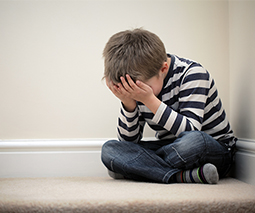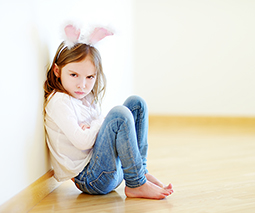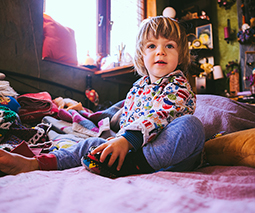Disciplining a toddler 101: Tips and tricks we’ve learned along the way

The other day, my two-year-old son had a tantrum because I gave him a yellow spoon. Clearly, I should have read his mind and known that he wanted a purple one. Obviously.
Each phase of childhood brings a new challenge
When he first started having tantrums, my husband and I were unsure of how exactly to handle them. Most of the time, it’s easy to distract him, although we have had the odd occasion where he has thrown himself to the floor and cried. In these cases, it’s best for him to let out his emotions. Eventually, he’ll stop crying and carry on. I’ve always believed that, depending on the tantrum, it can be better to leave him to his own devices. He feels like he has expressed himself. Usually, I’ll go to him and ask him how I can help. Sometimes, he’ll tell me what is worrying him, other times he’ll shake his head and cry. If necessary, I’ll cuddle him until he calms down. He’s safe in my arms, and he knows it.
Each phase of childhood brings new, and exciting (insert eye roll here) challenges. From toddler tantrums to biting, to sharing issues and lying, there’s a whole range of issues to deal with. And they usually require slightly different styles of discipline. From everyone I’ve ever spoken to though, the key is consistency.
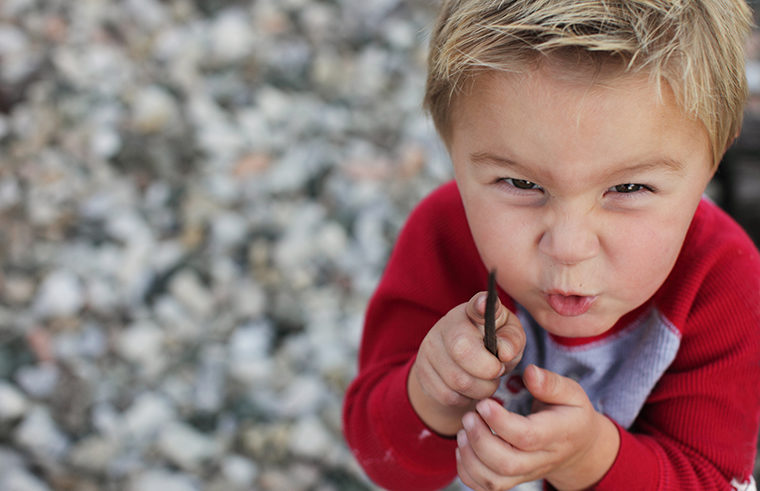
Learning through discipline
The problem we’ve had until now is trying to rationalise with a child who has little understanding of the consequences for his actions. And while it is getting easier as he grows older, my husband and I still haven’t had a proper conversation about how to deal with every behavioural challenge that gets thrown our way. Sometimes things work for me that don’t work for Daddy, and vice versa. For example, if our little one isn’t listening to me or isn’t sharing his toy with his cousin, I tend to use counting – “Mummy is going to count to five. When I get to five, it’s X’s turn with the digger.” I know, with pretty much utmost certainty, that time-outs will not work with my child. He loves his own company, so being put in a room or in an area by himself, even with no toys to play with, can be heaven for him. How is that a punishment?
When researching all the different ways to help a child learn through discipline, I became a bit overwhelmed. There are so many theories out there that it can be very confusing for any parent.
So, lucky for you, I’ve done all the hard work. Here’s what I found:
Balance is key
The key is finding the balance. Discipline is important. It creates boundaries and believe it or not, it makes children feel secure. On the other hand, not enough discipline can create an out of control situation, yet too much harsh discipline can create an atmosphere where children are only behaving appropriately because they’re scared.
When it comes to toddlers, the balance can be hard to find, especially as they are still figuring out cause and effect and learning how far they can push the boundaries before you react. Also, they’re sometimes misbehaving because they can’t express or control their emotions appropriately.
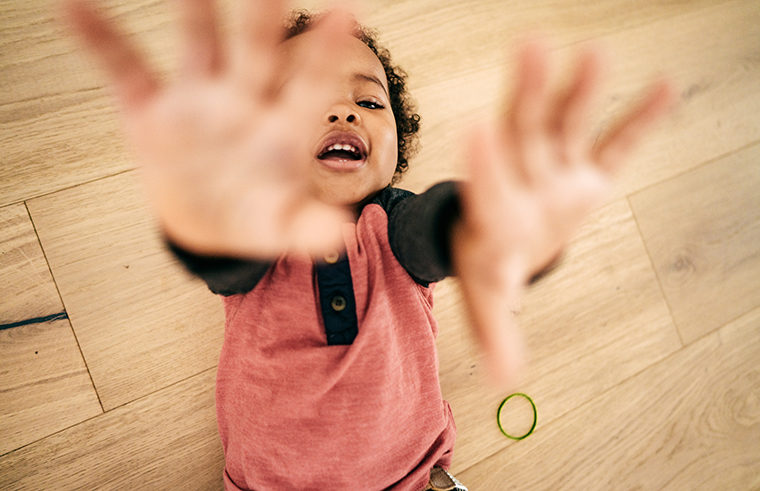
So, in the spirit of giving, here are some tips that I have found work with my toddler. Remember though, they may not all work for you and they may not all work every single time.
1. Give your toddler choices
Toddlers love to be independent so rather than telling them what to do, give them an option. For example, you could ask, “Do you want an apple or a banana.” Two choices are usually enough; you don’t want to overwhelm them.
2. Keep calm
Children feed off our emotions, and they thrive on attention, good and bad. If you’re composed, they’re likely to calm down quicker. Try not to raise your voice and keep it short and simple.
3. Understand what triggers a tantrum
Kids suffer from ‘hangry’ too, and this can be a big cause of tantrum meltdowns. If this is the case for your child, keep some snacks on hand. Children can also get upset if they need to stop playing or leave somewhere they’re happy so in this case, give them warnings. For example, ten minutes, five minutes and two minutes.
4. Give consequences
One thing we’ve figured out works well with our little one is putting a toy away if he does something he shouldn’t. For example, if he hits someone or refuses to tidy up, we put away one of his toys until the next day. He very quickly catches on. Of course, we also talk about why he shouldn’t hurt other people and how to use his words.
5. Listen
Often your child’s actions are telling you much more than their words can. Toddlers are still learning to express their emotions, so it’s normal for them to lash out. If they are doing something they shouldn’t, talk to them and really listen to their response. Let them finish their story before you troubleshoot, and talk about why it is happening and how you can work together to fix the problem.
Don’t forget a generous helping of praise too
One thing we’ve found works wonders is catching our little one being good. Children love being praised and admiring their good behaviour not only gives them a little bit of positive encouragement, but it also shows them what is good versus what is bad. They’ll even start to enjoy the positive reaction a lot more than the negative one. Be clear in your praise and explain what you liked most about their behaviour. Our little one hasn’t been so great at sharing in the past, so whenever he does share, especially when it has not been prompted, we always tell him how proud we are of how he shared his toys. The smile plastered on his face makes our day.
At the end of the day, children thrive on discipline. It brings stability, structure and promotes good behaviour. And while they will try to push those boundaries time and time again, disciplining them as they grow will ensure a healthy and happy childhood. It helps them navigate relationships, shows them how to express their feelings and, most importantly, teaches them how to navigate the challenges that will most definitely arise throughout their lives. As parents, it’s our job to arm them with these tools.

